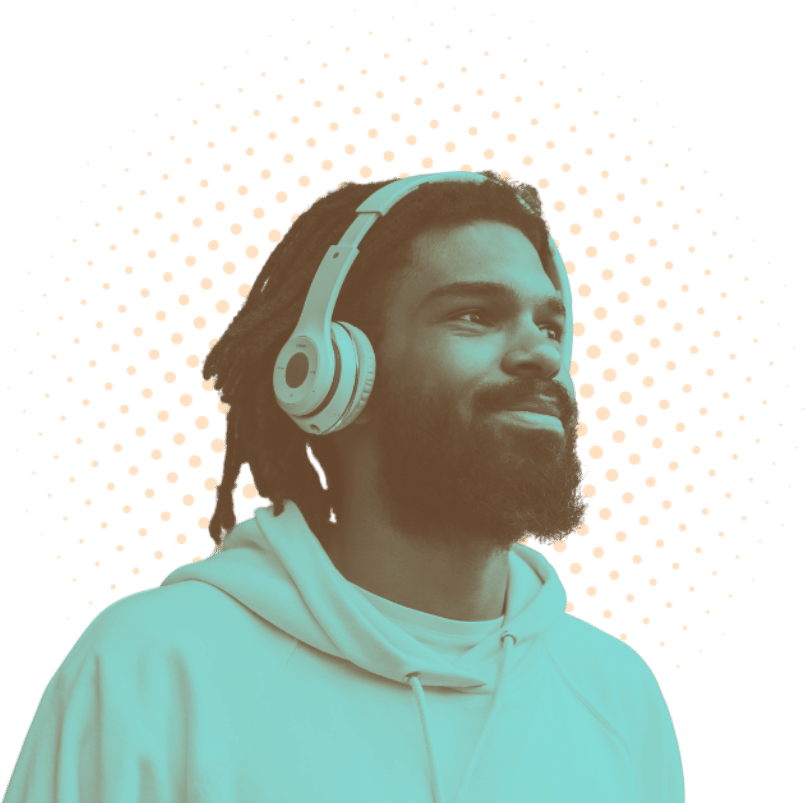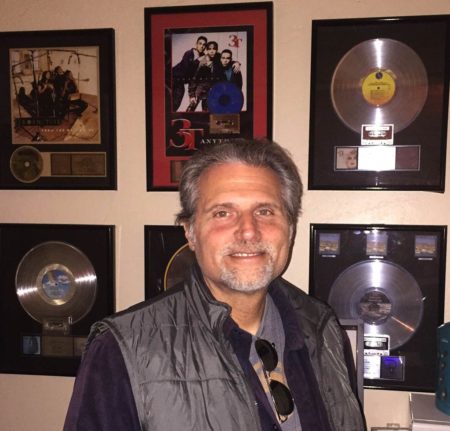
Titan Recording (Titan Music Inc.)
Sherman Oaks, CA
Hear from Michael Blum's Students
Notable Clients of Michael Blum
-
Michael Jackson
-
Prince
-
Madonna
-
Pink Floyd
-
Kelly Clarkson
-
Jessica Simpson
-
The New Radicals
-
Baby Face and Jody Watley
-
Footloose
-
Free Willy
-
Freddy's Dead
-
The Final Nightmare
-
Who's That Girl
AMPLIFY YOUR LIFE
WITH AUDIO
ENGINEERING AND
MUSIC PRODUCTION
IN-PERSON MENTORSHIP
Are you our next Success Story?

"*" indicates required fields
Notable Apprentices:
Meet Your Music Pro, Michael Blum
Q. Recording Connection mentor Michael Vail Blum talks Artist Development & Embracing an Entrepreneurial Approach

Recording Connection mentor Michael Vail Blum
A true veteran of the music industry, Recording Connection mentor Michael Vail Blum is a Platinum-selling producer/engineer who’s sold more than 100 million records and worked with some of music’s biggest names, including Madonna, Michael Jackson, Julian Lennon, Prince, Roger Daltrey and others; he also had a hand in developing Kelly Clarkson as an artist before American Idol launched her to international fame. Operating out of Titan Recording in Los Angeles, CA, Michael also takes pride in helping Recording Connection students gain the experience and connections they need to build their own careers in the industry.
In a recent conversation with RRFC, Michael dropped shared a few nuggets of wisdom with us including: the kind of passion he looks for in students, the importance of thinking like an entrepreneur, and key advice on working with artists and creating opportunities. Enjoy!
ON WHY HE PARTICULARLY ENJOYS FINDING AND DEVELOPING ARTISTS:
“I just love being able to conceptualize how an artist could be presented. It’s almost like taking a diamond and being able to cut the diamond into how you want to do it and put it in the setting so it’s attractive. And there’s a million ways to do that. And it just so happens that when I make the connections in my head, it takes a while to germinate, but then it seems to work pretty well when I can make a connection as to how to take an artist and make them more understandable to the rest of the industry and the rest of the public. So, part of the thing that I think I really love about it is that I can take an artist, and get into what they’re all about, and try to bring that more to a place where other people understand it. And that’s what I view is the role of a producer, is to be the objective ear…I do a lot of that kind of stuff, and in the process I probably have had six to eight artists sign major deals, and so just something I love to do…Right now, I’m working with a really great artist…His name’s Chris Esse, and his writing is amazing. It’s a cross between David Bowie, it’s a little Pink Floyd, it’s a little ELO. It’s just really great. It’s kind of classic sounding.”
ON DISCOVERING AND DEVELOPING KELLY CLARKSON BEFORE HER AMERICAN IDOL WIN:
“I started doing my own thing…where we’d get musicians in the studio, because it was my studio, on some off time, and we’d start working with artists. Anastacia was one of the artists to develop…she ended up getting a huge deal on Sony…And then after Anastacia, I put the word out there I was looking for more talent…So I started auditioning some vocalists, and Kelly walks in the door and sang me a Mariah Carey track. That day, believe it or not, there were probably three or four other girls that were just as good, and I ended up gravitating towards her because some of the songs we wanted to record seemed like they’d be perfect for her.”
ADVICE ON WORKING WITH ARTISTS:
There’s always that get-to-know-each-other period. That’s really important, actually, because a lot of it is learning how to communicate well with your artist and get to know where they’re coming from, and what their songs are about, and why they wrote it and what motivated them. So you can cue into that and be sensitive to that, and also try to understand why other people sometimes might not get what they’re trying to communicate in their songs. So that’s what I try to do, and I think that it’s really important because then the artist understands that you’re really on their team. There’s so many producer/engineers and programmers and writers that just want to live through another artist and try to put their own stamp on them, and that’s not my personal style. My personal style is to make the best out of what the artist can be, and that’s why I have so many varied styles from Madonna to jazz to rock.”
ON THE IMPORTANCE OF EXPLORING A DIVERSITY OF GENRES:
I think one of the pitfalls [in this business] is that people start thinking of themselves as one genre of music. I look at music as being a creative endeavor in a bigger sense. And I think it’s really important to be able to keep learning, changing styles, learning from new artists. It’s all good, and it’s all music, so it’s kind of like if you wore the same clothes every day, it would get boring.”
ON THE IMPORTANCE OF THINKING LIKE AN ENTREPRENEUR IN THE CHANGING MUSIC BUSINESS:
“I feel like I’ve always taken the path of building my own career and being proactive about it. And I think that that’s an essential part of it, where sometimes my peers will complain about the industry, I just see it as an opportunity. And I think that it’s really important to go out and build your own career. And that’s what finding talent is to me, is being able to have the opportunity to find something I think is good and valuable and bring it to market. In the process, incidentally, I have my own label.”
Q. Michael Vail Blum on Working with Artists and What He Looks for in Apprentices
We recently sat down with producer and engineer Michael Vail Blum to talk music making and working with artists. We figured he’d have some quality advice for us considering he’s worked with the greats including: Michael Jackson, Prince, Madonna, Roger Daltrey and has sold over 100 million records to date. And, he’s also the guy to discover Kelly Clarkson before American Idol.
Do you ever have a hard time transitioning from the technical side of the work to the creative?
“For me personally, I look at engineering, electrical engineering, I look at mathematics, I look at those figures as creative things. Most people think of technical as just doing dry and boring, but actually…it’s problem solving. And music, many times, or writing songs is problem solving. Making a good record is problem solving, and putting all the pieces together kind of like a jigsaw puzzle. So I look at those things very similarly. And I’ve always been a creative person.”
How do you help artists acclimate to working with you in the studio?
“There’s always that get-to-know-each-other period. That’s really important, actually, because a lot of it is learning how to communicate well with your artist and get to know where they’re coming from, and what their songs are about, and why they wrote it and what motivated them. So you can cue into that and be sensitive to that. Also try to understand why other people sometimes might not get what they’re trying to communicate in their songs. So that’s what I try to do, and I think that it’s really important because then the artist understands that you’re really on their team. There’s so many producer/engineers and programmers and writers that just want to live through another artist and try to put their own stamp on them. That’s not my personal style. My personal style is to make the best out of what the artist can be, and that’s why I have so many varied styles from Madonna to jazz to rock.”
What qualities do you look for in potential externs?
“I love it when students are really there to put in the extra time, to do something that they want to learn, and it makes me want to show them stuff…If they’re just here putting in time so they can walk away or if they just want to meet a famous artist, that’s kind of hollow for me. I really want the guy who wants to stay with me until 3am, working on a mix because they really love it, even if they’re not mixing, even if they’re just assisting or just helping. And many times I’ll just get up and say, ‘Hey, you finish it.’ And then they can really try their skills at it. I’ve got a couple of guys that went through the program, actually, that are here at the studio now, and they’re great and they’re dedicated. And that’s how I was when I started. I’d sleep on the floor just to be in the control room, and I think that that’s an essential part of it because you want to learn it…My students, I tell them right off the bat, ‘Hey, if you want to put in the hours and you want to come in everyday, you want to stay until midnight, you can do that. It’s up to you how much you get out of it.’ I wish I had that kind of program growing up. I had to force my way in somehow.”
Why he chooses to mentor for Recording Connection.
“I think it’s a great program…I actually love teaching people that want to know what it’s taken me thirty years to learn. And I think other mentors probably feel the same way…It’s a great starting point to really sort of get an understanding of what to do and how to do it. But after that, then it’s important to focus on developing your own style, your own career. You can’t just sit back and wait for it to happen, because it doesn’t unless you do it.”
Notes:
Michael has worked on records that have earned Silver, Gold, Platinum and Diamond awards from RIAA and sold more than 100 million records worldwide. Helped develop Kelly Clarkson as an artist before American Idol launched her to international fame.
Learn in Michael Blum's Studio in Sherman Oaks, California
-
Michael Blum